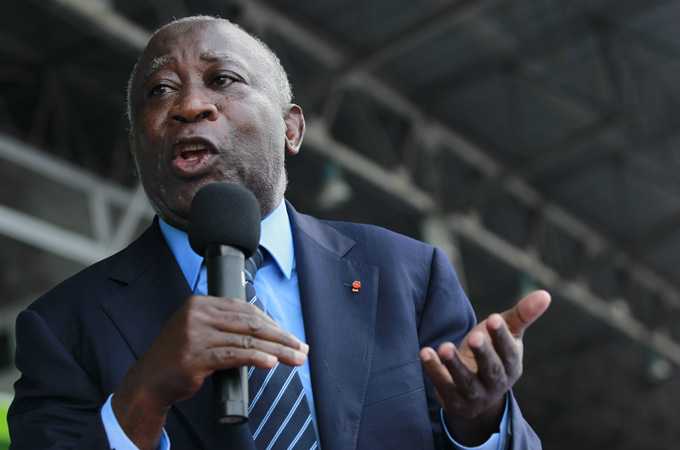Sierra Leone’s information minister said leaders will call on Gbagbo to step down, and did not intend to negotiate with him.
Diplomatic pressure on Ivory Coast’s defiant man Laurent Gbagbo mounts, as the West African leaders are expected in Abidjan on Monday in order to reiterate the Economic Community of West African States’ (ECOWAS) demand that the strong man stand down and give the way to his rival, the internationally recognized President, Alassane Outtara.
Raila Odinga, the Kenyan prime minister, named by the African Union to try to resolve the country’s stalemate, is traveling to Abidjan and will join a mission from ECOWAS including the presidents of Benin, Cape Verde and Sierra Leone.
The leader will meet Gbagbo and Outtara, both claiming victory in the November 28 disputed presidential polls.
Odinga flew to Nigeria on Sunday en route for Abidjan. He met with Goodluck Jonathan, the Nigerian president, who also heads the ECOWAS.
"We have just finished our dinner together at his house during which we discussed the Ivorian issue," Odinga told AFP by telephone from Abuja.
"I will travel to Abidjan tomorrow (Monday) to meet presidents (Laurent) Gbagbo and Alassane Quattara and return in the evening to Abuja to brief President Jonathan on my mission," he said.
Ahead of the talks, Odinga said he would keep an open mind on finding a solution for Ivory Coast.
"We don't want to pre-empt anything. We just want to talk to him (Gbagbo) and we will see what happens," Odinga told the AFP news agency after he arrived in Nigeria.
"It depends on how Gbagbo wants to handle it."
Sierra Leone's information minister, Ibrahim Ben-Kargbo, told the BBC the leaders will call on Gbagbo to step down, and did not intend to negotiate with him.
Kargbo also told Voice of America that the regional leaders are returning to tell the Ivorian leader to abide by the Christmas Eve ECOWAS declaration calling for him to step down.
“We are leaving this morning, Monday, heading for Abidjan, Ivory Coast. Yes, the President of Sierra Leone will be joined by the Presidents of Cape Verde and Benin to meet with Mr. Laurent Gbagbo and Mr. Ouattara once more consistent with the Christmas Eve communiqué circulated by the heads of state in Abuja,” he said, referring to the message delivered by ECOWAS in the Christmas Eve which said that Gbagbo should stand down and give the way for Ouattara or he will face force.
“ECOWAS is merely attempting or trying to implement the communiqué circulated by the heads of state Christmas Eve and, in doing so, ECOWAS wants to make it very clear that there is no point of negotiation, as all the parties must adhere to the contents of the communiqué circulated by the heads of state on the 24th of December,” Kargbo added.
On the other hand, The UN official investigating alleged abuses in the West African country after the disputed election said he had evidence of extra-judicial killings.
Simon Munzu told the BBC that his staff had verified some cases, while others were reported by families.
But he said a campaign of intimidation by Gbagbo's supporters appeared to have receded.
Speaking to the BBC World Service's Newshour program, Munzu said the UN had received many reports of killings.
"In some cases the information has been verified by our own staff of the human rights division right across [Ivory Coast] but for others we rely on information reported by family members," he said.
He cited an example of a report from one person who said his uncle and another man disappeared before their bodies were found in a mortuary with signs of "foul play".
Human rights groups claim allies of Gbagbo have been abducting opponents.
The UN says some 200 people have been killed or have disappeared in the past month - mostly supporters of Ouattara.
Peacekeepers from the UN mission (UNOCI) have been instructed to do all they can to investigate sites of alleged human rights violations, but say security forces loyal to Gbagbo have twice blocked them from visiting the site of one of two alleged mass graves.
The Gbagbo government has repeatedly denied the existence of any mass graves.
The UN has also expressed concern that some of the homes of opponents to Gbagbo have been marked to identify the ethnicity of their occupants, indicating signs the country could be heading for ethnic violence.
